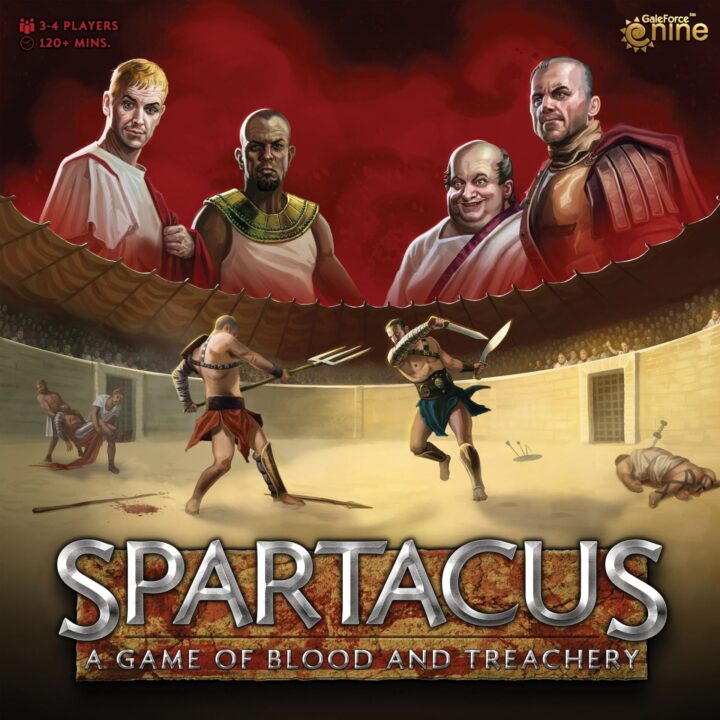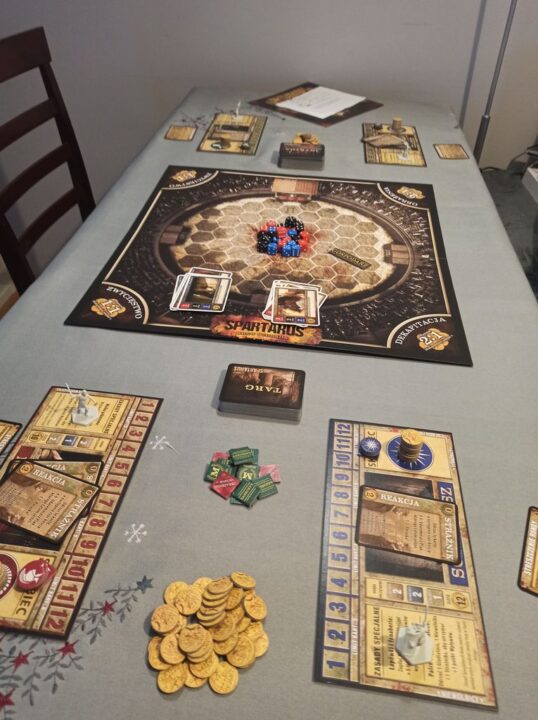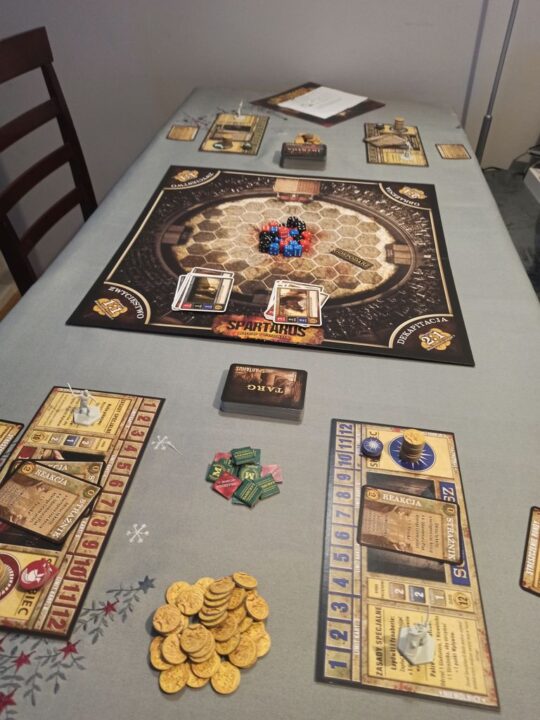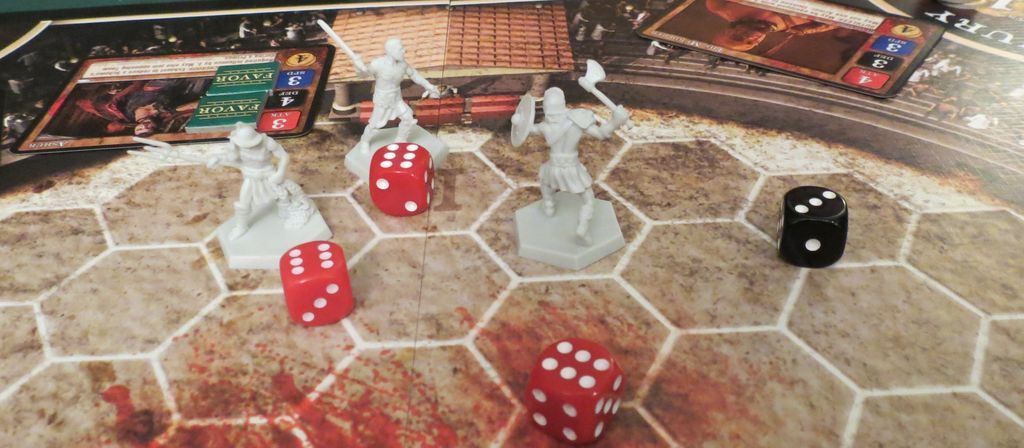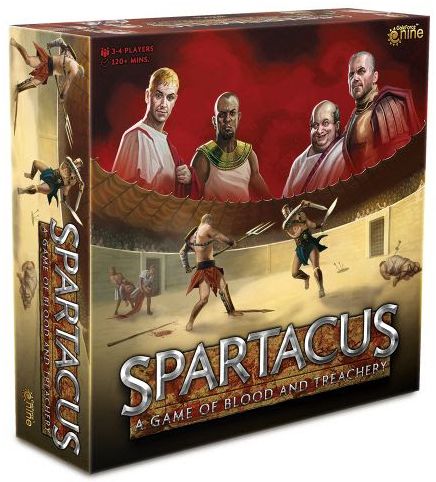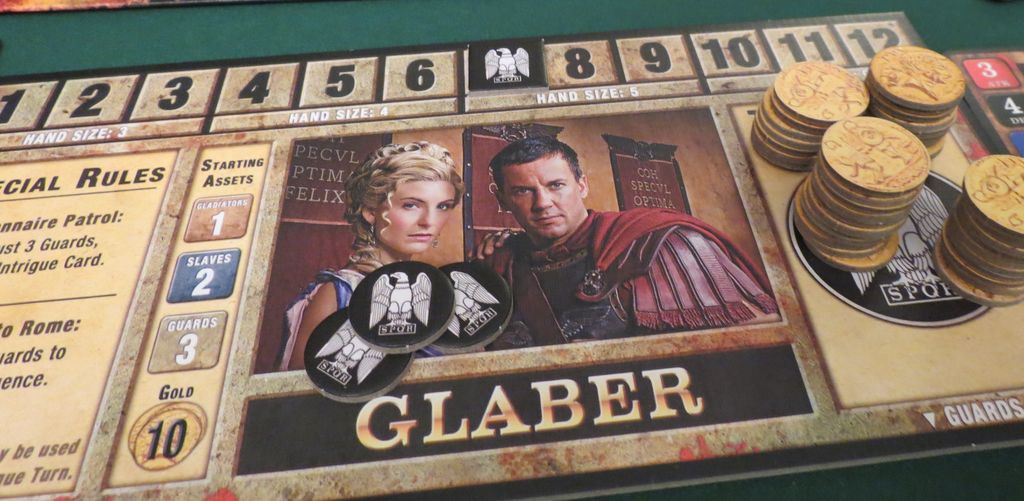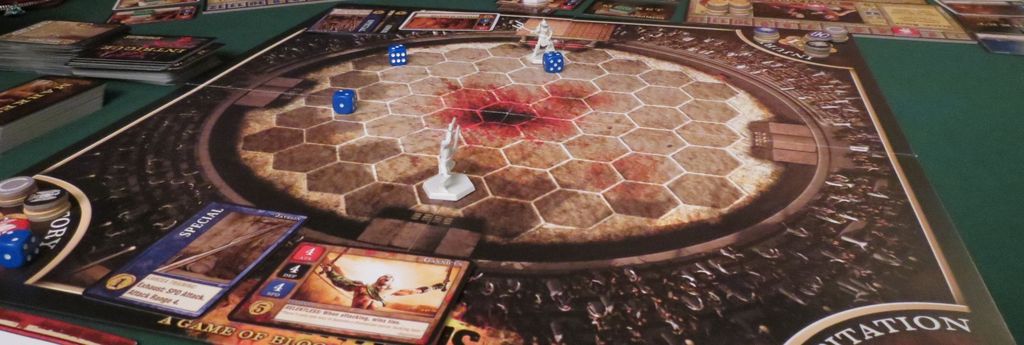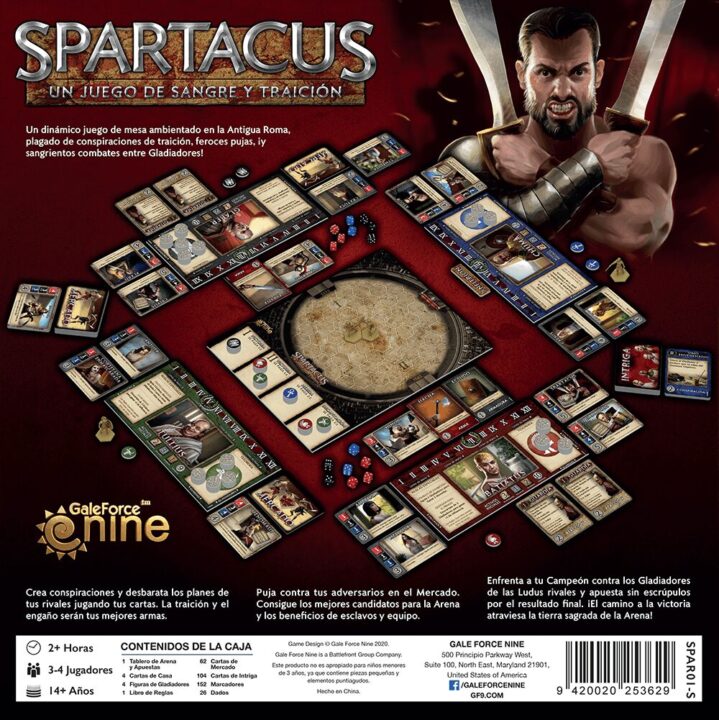Overview
Welcome to this lively review of Spartacus: A Game of Blood and Treachery, where blood spills as facilely as the deceitful schemes of its players. Embark on an odyssey through the ruthless lands of Capua, mastering combat, cunning, and camaraderie—pillars that support the heart and soul of this captivating board game experience.
How It Plays
Welcome to the vicious and cunning world of Spartacus: A Game of Blood and Treachery, where players navigate the underhanded politics of Ancient Rome’s most infamous arena. Let’s take a quick jaunt through the core mechanics of this engaging board game.
Setting up
To set up, each player chooses a House, takes corresponding tokens, gladiators, and slaves, plus a starting hand of cards. Position the game board, set the market stack with Equipment, Gladiators, and Slaves to be auctioned later, and place coins and initiative order within everyone’s reach.
Gameplay
Gameplay follows a cyclical pattern—Intrigue phase allows for shadows of deception, Market phase brings forth competitive auctioning, and the pivotal Arena phase where strategic battles can tilt fortunes. Acquisition of resources and shifting alliances fuel the action.
Winning the game
Victory is a pursuit of ‘influence’, a quantified measure of a house’s power. Players bid for dominance in the sands of the arena or via political scheming until one house towers with 12 influence points—the telling prompt of success and the crown of victory.
Want to know more? Read our extensive strategy guide for Spartacus: A Game of Blood and Treachery.
Blood, Sand, and Strategy Aplenty
One fateful evening in the throes of ‘Spartacus: A Game of Blood and Treachery Review’, I found myself cornered by an adversary’s cunning. With a swift play of Thracian might, triumph emerged not through raw strength alone, but keen strategic positioning.
Mastering the Arena
By the third clash of swords, our group savored every tactical nuance. Employing diverse gladiators, each with distinct attributes, the decision-making proved magnificent. Choosing when to strike, or guard, bore versatility yielding shouts and gasps around us.
The Art of Resource Management
Resource allocation further flavored combat; judicious trading of coin for muscle shaped our fortunes as much as the arena’s sandy duels did. The strategic combat reflects Spartacus’ subtle mastery;
Conclusion:
Now, let us pledge a temporary truce and venture into the winding roads of social manipulation and alliances.

Mastering the Arena of Influence
In my gaming group’s experience with Spartacus: A Game of Blood and Treachery, the art of persuasion sometimes outshone the physical clashes of gladiators. Our gameplay thrived on moments of whispered promises during the intense bidding wars, where allegiances formed over shared goals. Consequently, forming alliances proved just as fickle as they were necessary.
Temporary Alliances
Admittedly, while initial bonds formed swiftly — often based on an evening’s dynamics — each subsequent negotiating phase brought reminders that no alliance in the arena is set in stone. Our interactions sizzled with tension, as backstabs were as common as handshakes, and everyone was wary of loyalty’s fleeting nature.
Betrayals Bound to Happen
When betrayal came, it was never personal, just the Spartacus way. One minute you strike a deal, the next, your so-called friend launches a devastating blow, sending a ripple of dramatic gasps (and laughter) around the table. The game ingeniously weaves betrayal into its social fabric, teaching that in the unforgiving sands of Spartacus, trust is a rare commodity.
Transitioning from whispers to wagers, let’s delve into the Intrigue cards and their pivotal role in the warfare of wits.
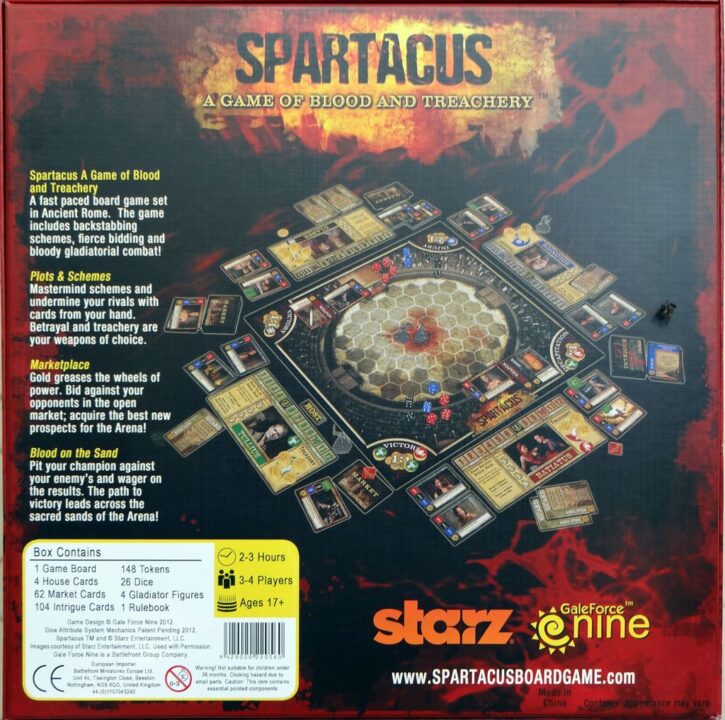
The Cutthroat Intrigue of Spartacus
Reflecting on our riveting game nights, Spartacus: A Game of Blood and Treachery often came down to who wielded Intrigue cards most cleverly. During one heated session, a well-timed ‘Poison’ card completely upended our meticulously planned finale, leaving us in awe of the game’s unpredictable nature.
The Element of Surprise
Intrigue cards foster a sense of uncertainty—just when you think you’ve mapped out the arena politically, a ‘Wealthy Patron’ card shifts the power dynamics drastically. This system challenges even the most seasoned tacticians among us to adapt swiftly.
Risk Versus Reward
The ‘Bribes’ and ‘Guard’ cards introduced strategic depths that rewarded risk-takers but also encouraged conservative play among the more cautious. This intricate dance between daring and prudence is where Spartacus truly shines as a game experience.
After weighing the cunning complexity these cards bring, I wholeheartedly recommend Spartacus: A Game of Blood and Treachery for your gaming table.
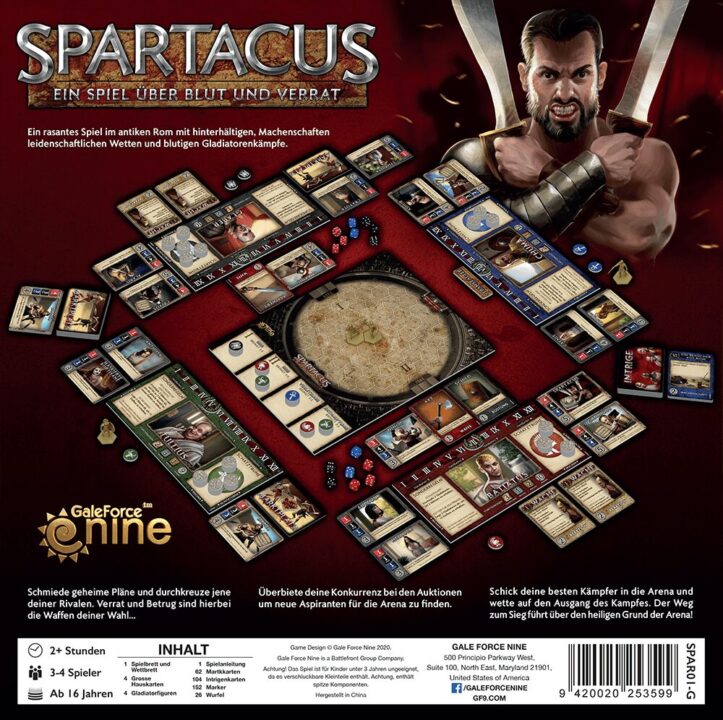
Conclusion
As we wrap up this Spartacus: A Game of Blood and Treachery Review, it’s clear that the game is a dynamic tapestry of strategy, cutthroat negotiation, and tactical complexity. Its mechanics encourage players to balance the arduous pursuit of power with careful considerations of temporary alliances and psychological warfare. Spartacus does a remarkable job offering an experience that’s as much about playing your opponents as it is about playing the game itself. Whether you revel in the scheming brought forth by the Intrigue cards, the thrill of the arena’s clashing gladiators, or the sharp sweet taste of betrayal as friendships turn to rivalries, this game promises to deliver and lives up to its promise. A savvy dose of patience and shrewd gameplay could see you rising as Capua’s most potent orchestrator of conspiracy and triumph. For those enamored with heavily interactive games, Spartacus is undeniably worthy of consideration for your next game night.

